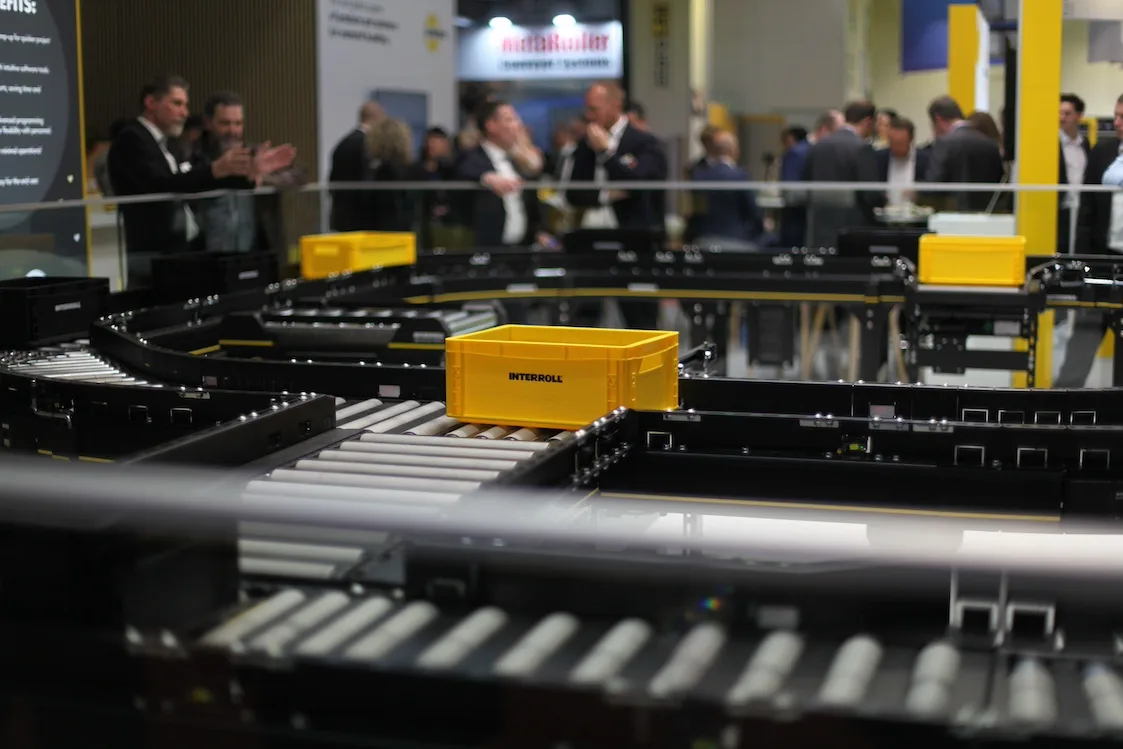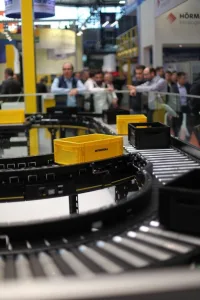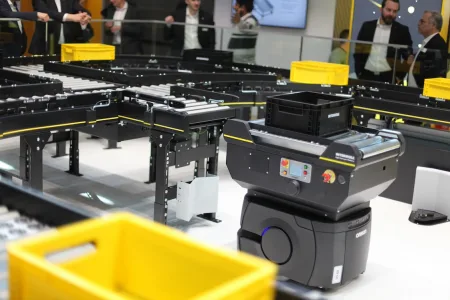The age of plug-and-play
Hilton Campbell asks why SMEs can struggle to automate, and where the material handling industry must respond.

FOR SMALL and medium-sized manufacturing and logistics businesses, the journey toward intralogistics automation continues to be fraught with challenges.
While the benefits of automated internal logistics are well-established – improved efficiency, reduced labour dependency, increased throughput – there remains a stark disconnect between potential and practice. The primary barriers to adoption? Complexity, cost, and a lack of flexibility in conventional systems.

Unlike their larger counterparts, SMEs rarely have the luxury of deep automation budgets or the in-house expertise to manage complex programmable logic controllers (PLCs) and intricate IT environments.
Installing a sophisticated material-handling automation system traditionally come with long lead times, heavy integration requirements, and rigid infrastructure needs. For a sector driven by agility and responsiveness, these constraints are more than just inconvenient – often they make upgrades unachievable.
The age of plug-and-play
The solution that has been lowering the barriers to entry for intralogistics automation is modular conveyor systems. First arriving on the scene in the 1970s, modular conveyor systems have grown increasingly capable and sophisticated over the years.
Today, modular systems enable facilities to scale up or adapt layouts with relative ease, responding to changing production volumes, new product types, or evolving business strategies without starting from scratch. They are flexible, fast to install, and require less specialist expertise to maintain – all key factors for SMEs seeking to stay competitive without overextending their resources.
Yet, as customer expectations grow and market pressures intensify, even modular systems must evolve further. Flexibility alone is no longer enough; higher throughput, smarter layouts, and more efficient control strategies are increasingly essential.
Unlocking a new level of sophistication with MCP Play
This is where Interroll’s latest innovation, MCP Play, comes in.
Launched in early 2025, MCP Play is a software-based add-on to Interroll’s highly successful Modular Conveyor Platform (MCP) – already widely recognised for its reliability, flexibility, and ease of installation.
MCP Play introduces a powerful new layer of intelligence to modular conveyor systems, making a whole new level of automation sophistication available, without the typical complexity and cost.
At its core, MCP Play allows users to define advanced material flow behaviour right from the layout design stage. Using an intuitive, graphical programming approach, users can build a digital model of their system and programme sophisticated logic – such as routing, sorting, accumulation strategies, and dynamic prioritisation – before a single component is physically installed.

The result? Systems can be fully pre-programmed based on the layout model, dramatically simplifying installation and commissioning processes. Instead of needing intensive PLC programming on site, the system’s intelligence is effectively embedded at the configuration stage.
For SMEs, this is a game-changer. It removes the need for specialist software engineers, reduces commissioning time, and cuts installation costs. Importantly, it also means that material handling systems can be brought online faster and adapted more easily as operational needs change.
And the impact is more than just convenience. According to Interroll’s data, MCP Play can increase throughput by up to 100% compared to conventional modular conveyor setups. Smarter routing and control logic mean fewer bottlenecks, better space utilisation, and more responsive handling of variable product flows.
A future-ready approach
In an industry where many smaller operators have previously had to choose between affordable simplicity and costly sophistication, MCP Play offers a compelling middle ground. It delivers high-end automation capabilities in a modular, easy-to-implement package – levelling the playing field and giving SMEs access to performance improvements that were once out of reach.
Moreover, MCP Play is designed to integrate seamlessly with Interroll’s existing MCP components and conveyor modules, ensuring backwards compatibility and preserving the investment businesses have already made in their infrastructure.

Ultimately, the launch of MCP Play signals a shift in the material handling industry. Automation can no longer be considered a privilege of the biggest players. With the right technology approach – modular, software-driven, and user-friendly – the benefits of smart, high-throughput intralogistics are now accessible to all.
Innovations like MCP Play will be critical to empowering the next generation of agile, automated operations.
Hilton Campbell, UK managing director, Interroll





